|
The Doctor of Philosophy in Bioethics, Sustainability & Global Public Health (PhD) Program prepares students for roles as professionals and community leaders in a multiethnic community, by sharing cross-cultural perspectives through the diverse international advisory and adjunct faculty. The program will draw upon the wide extent international experience of the resident and visiting faculty, as well as their multidisciplinary qualifications. The Ph.D. program in Bioethics, Sustainability, and Global Public Health, has two possible specializations: Specialization 1: Bioethics and Global Public Health Specialization 2: Sustainability, Peace and Global Development The program will assist in the training of professional researchers who will be leaders who can assist people to combine technical expertise and competence with cultural, ethical and regulatory competence. | 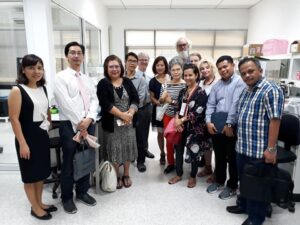 Download the full program pdf file to read more Download the full program pdf file to read more
|
| Curriculum | |
| To complete the Ph.D. program, students must satisfy the course curriculum. The students should complete the minimum of 72 required semester credits (1080 clock hours). It may be possible to apply for substitution of up to 30 credits from a prior Master or Doctoral degree to reduce the requirement to 42 credits (630 contact hours). In the latter case the program can be completed by full-time study within two (2) to three (3) years of study or may take longer by part-time study. There will be substantial supervision hours for thesis proposal and thesis writing. The Ph.D. offers two specializations and many elective courses, to create a tailor-made education |
Compulsory Courses (54 credit hours)
| The list of previous PhD dissertations and PhD proposals is available, as is the list of Masters degree dissertations of graduates.
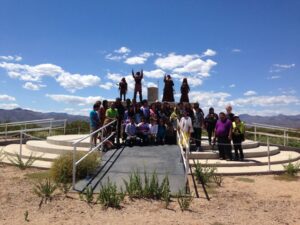 Follow the link to view some example video lectures from many of these courses. ,
|
Elective Courses (select at least 26 credit hours)
| |
| Required Core Competencies and the Syllabus of Courses are provided in the course description linked pdf file (AUSN-PhD-Description). Further information on Admissions, Scholarships, other Degrees, dissertation titles, the Modality of the Lectures, Credit Transfer, and general information are provided on this website and in the Catalog. Inquiries to provost@ausovereignnations.org |
| Featured alumni from this program | |
| Dr. Anke Weisheit, Uganda Integration of Indigenous Knowledge into Tertiary Institutions: The Case of Traditional Medicine in Uganda | 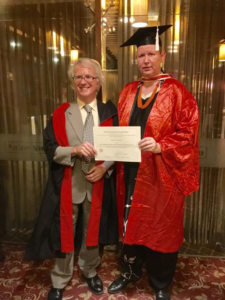 |
| Dr. Shahanaz Chowdhury, Bangladesh Perceptions on Health Insurance among Consumers in Bangladesh | 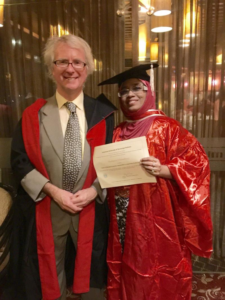 |
| Dr. Tahera Ahmed, Bangladesh
Awareness and Need of Life Skills Concepts among Young People in Bangladesh
Dr. Tarana Ahmed, Bangladesh Empowerment of Youth Street Beggars as Child Domestic Workers can make a Revolution in Bangladesh | 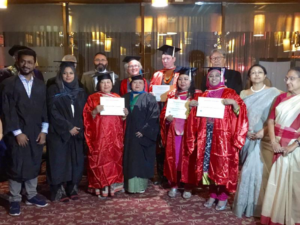 |
| Dr. John LaMuth, USA Behavioral Solutions for Advancing Global Peace and Harmony | 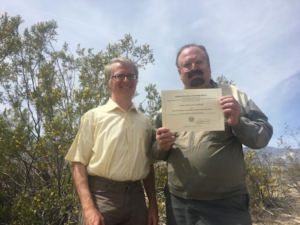 |
| Dr. Shamima Parvin Lasker, Bangladesh Core curriculum for publication ethics | 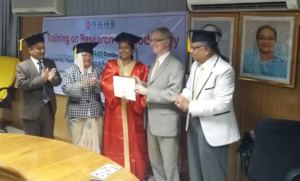 |
| Dr. Leonard Henry Le Blanc III, USA Dr. Darryl R. J. Macer and the Global Expansion of Bioethics Education | 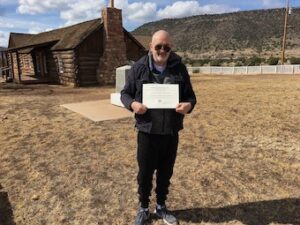 |
| Dr. Ananya Tritipthumrongchok, Thailand Enhancement of Mental Health through Fortune Telling | 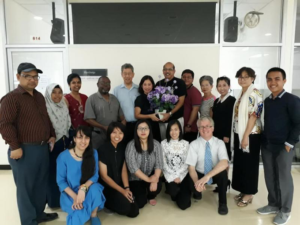 |
| Dr. Wendlser A. Nosie Sr., Former Chair, San Carlos Apache Nation, USA
Pilgrimage Against the Deception of the Attempted Assimilation of America | 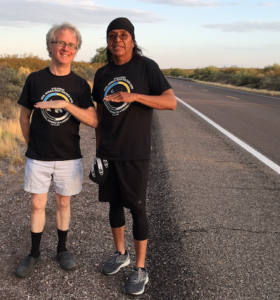 |
| Dr. Endreya M. McCabe, Delaware Nation, USA Ethical Issues and the Public Health of Native American Communities | 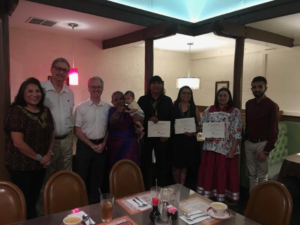 |
| Dr. Lian Bighorse, San Carlos Apache Nation, USA The Holy Fight: Awakenings of Apache Identity from Oak Flat to Transgenerational Justice and Decolonization | 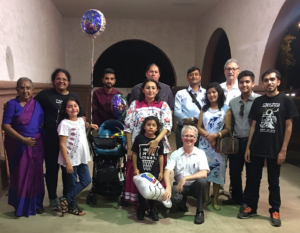 |
| Dr. Manuel Lozano Rodríguez, Spain Bioethics of Displacement: Being and Belonging amidst Politics of Pain – | 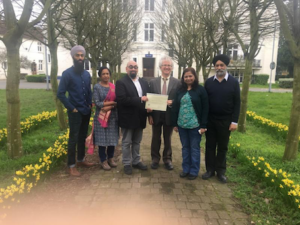 |
| Dr. Sumaira Khowaja-Punjwani, Pakistan Past, Present and Future Trends of Nursing Workforce Migration in Pakistan: Analysis and Policy Implications | 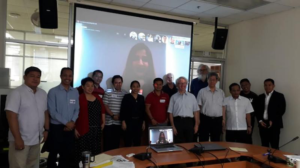 |
| Dr. Osama Rajkhan, Saudi Arabia Dissertation title: Going out to the Red Sea: Re-aligning conscious experience with nature’s xenobiotic response to boost personal health after 50 years of age. A holistic perspective on aging and nature deficiency syndrome | 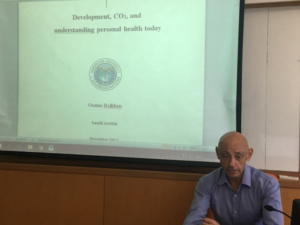 |
| Dr. Andrew Bosworth, Canada Discourses on the dynamics of life and chaos | 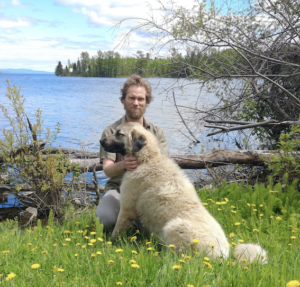 |
| Dr. Marlon F. Lofredo, the Philippines Ka-Loob Ethics: The Filipino Ethics of Patient Care | 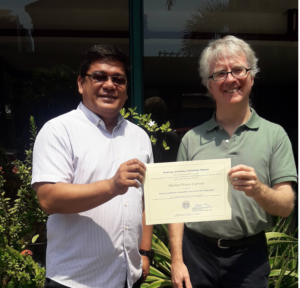 |
| Dr. Angelica M Baylon, the Philippines Proposed Manning Productivity Gain Cycle for Peace, Sustainability and Global Development: Implications for Bioethics and Health | 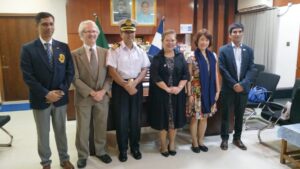 |
| Dr. Ryo Takahashi, Japan The Science, Philosophy and Bioethics of Gerontology in the Context of Our Future: An Individual and Community Journey from Japan | 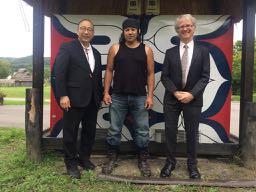 |
| Dr. Lana Al-Shareeda Le Blanc, Iraq/USA Ethics of the Failure to Educate Iraqi and Syrian Out-of-School Refugee Children in the Middle East and North Africa (MENA) Region | 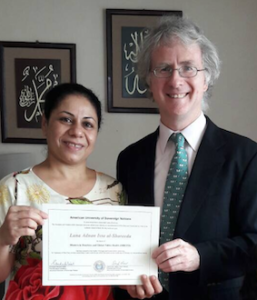 |
| Dr. Rogelio Bayod, the Philippines Enduring Quest For Identity: Towards Developing a Sustainable Development Model for the Indigenous Peoples in Mindanao | 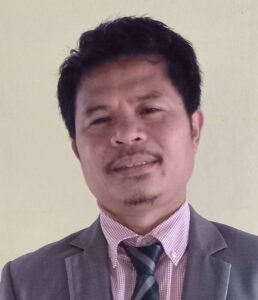 |
| Dr. Michael Layne Hartsell, USA/Thailand Global Justice, Nanotechnology, and Convergence through Open Reasoning: A commentary on a potential new technosocial reality | 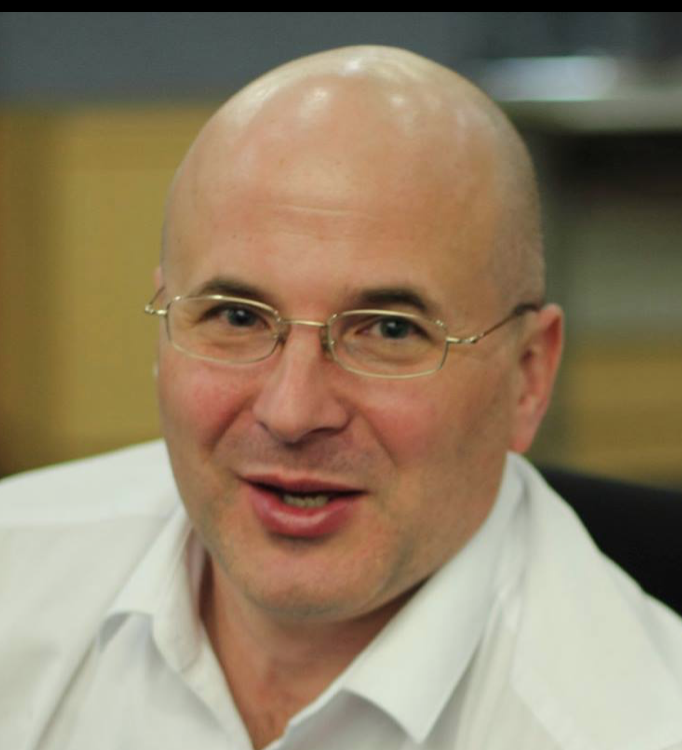 |
| Dr. Saeideh Sayari, Iran/Germany Muslim Communities and population growth with a Focus on Iran and Malaysia | |
| Dr. Leandro Silverio Estadilla, the Philippines Optimizing Trade-off between Economic Growth and Environmental Management among Association of South East Asian Nations (ASEAN) | |
| Dr. Nazneen Akhter, Bangladesh Ethical and Gender Dimensions of Social Exclusion in a Context of Globalization and Social Inequality Among Selective Marginalized Communities in Bangladesh | |
| Dr. Michael Mawadri, Uganda Recognizing the Importance of Indigenous Knowledge and Practices for Early Warning Systems for Disaster Preparedness and Response in Uganda | |
| Dr. Marites V. Fontanilla, the Philippines Ethical Practices of Filipino Software Engineers | |
| Dr. Patrick Ibe Okezie, UK Roles of sexual pleasure and sex-positive approaches in behaviour associated with reduction of HIV transmission | |
| Dr. Erfen Gustiawan Suwangto, Indonesia Developing Entrepreneurial Competencies for Primary Care Residents (Trainees) as a Model for Sustainable Delivery of Primary Healthcare in Indonesia | |
| Dr. Dexter C. Veloso, the Philippines Caring for our Common Home: Examining Ethical Paradigms for the Environment | |
| Dr. Aldrin Quintero, the Philippines Disaster Bioethics: Towards a Holistic Approach, Adaptive, Resilient, and Responsive Disaster Framework in the Philippines | |
| Dr. Sukran Sevimli, Turkey. Case studies on values and medical ethics education in Turkey | |
| Dr. Margaret Columba M. Baylon, the Philippines Beyond Perception: An Ethical, Scientific and Personal Analysis of Out-of-Body Experience | |
| Dr. Nusrat Fatema Chowdhury, Bangladesh International Comparisons of Followed Ethics in Palliative Care of Cancer Patients | |
| Dr. Dennis L. Alfaro, the Philippines Self-efficacy, Awareness of Privacy Control, and Susceptibility to Social Engineering among Young Professionals | |
| Dr. Dolma Lama, Nepal Tamang Women’s Reproductive Health Conditions | |
| Dr. Christine Cluff Reidhead, USA College Student Athletes’ Perceptions of Self Efficacy Management in Sports and Academic Performance and the Influence of Self Motivation | |